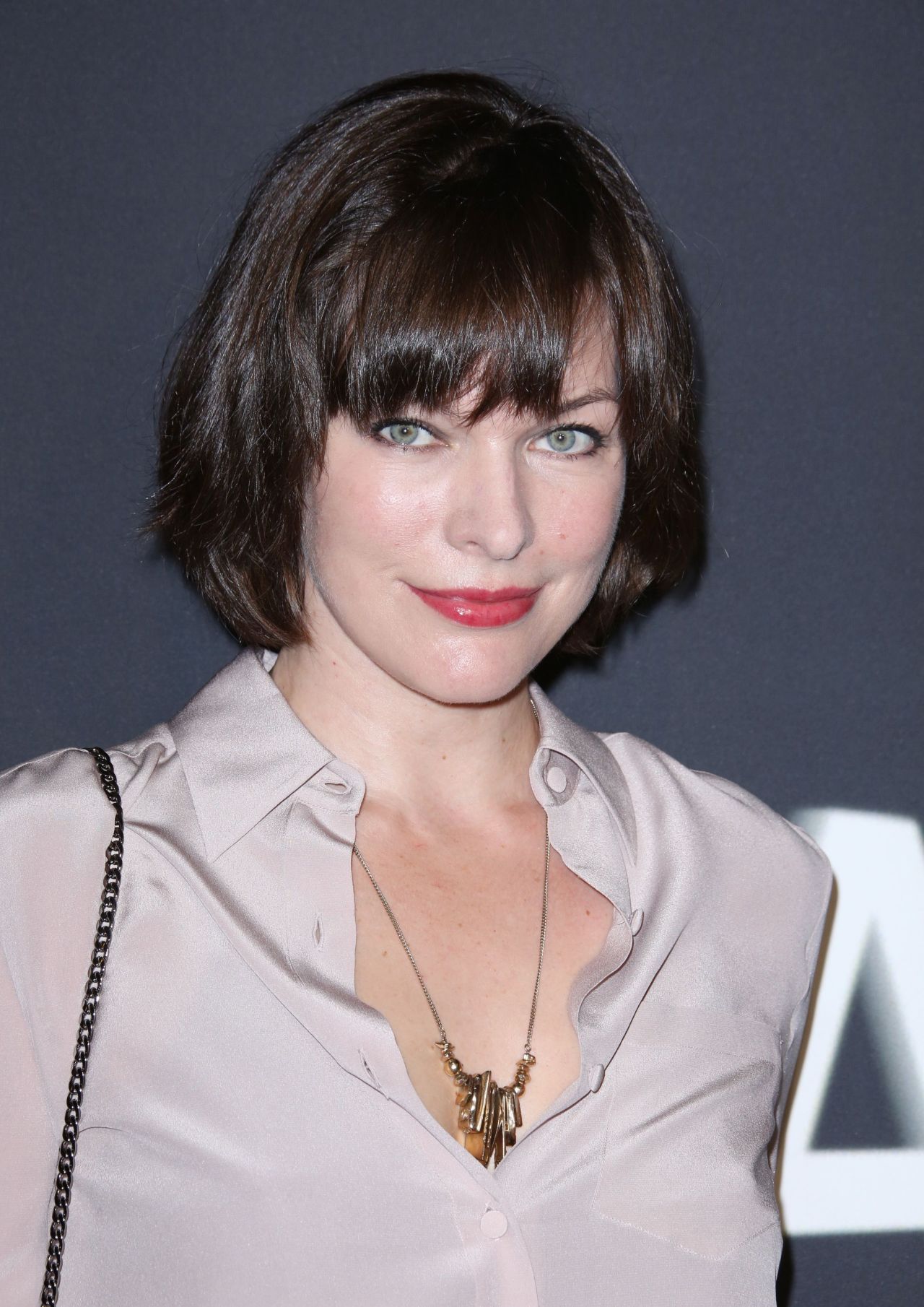In the ever-evolving landscape of digital influence and the often-murky waters of wellness culture, a compelling question frequently arises among viewers of Netflix's "Apple Cider Vinegar": Is Milla Blake a real person? This query cuts to the heart of the series, which masterfully blurs the lines between reality and fiction, drawing heavily from real-life controversies within the wellness industry.
The show's central character, Milla Blake, a charismatic wellness influencer battling cancer with unconventional methods, resonates deeply with audiences, prompting many to wonder about her real-world counterpart. While the series is a work of fiction, Milla's story is far from a mere product of imagination; it is intricately woven from the threads of actual events and individuals, most notably the tragic tale of Australian wellness entrepreneur Jessica Ainscough and the infamous health scammer Belle Gibson.
Table of Contents
- Unpacking Milla Blake: Fictional Character or Real Person?
- The Genesis of Milla Blake: Inspired by Wellness Culture
- Jessica Ainscough: The Primary Inspiration Behind Milla Blake
- The Belle Gibson Connection: A Rivalry Forged in Fiction
- The Dangers of Unproven Wellness Claims: A YMYL Perspective
- Alycia Debnam-Carey: Bringing Milla Blake to Life
- The Broader Message of 'Apple Cider Vinegar'
- Conclusion: The Enduring Impact of Fictional Truths
Unpacking Milla Blake: Fictional Character or Real Person?
Let's address the central question head-on: Is Milla Blake a real person? The unequivocal answer is no. Milla Blake is a fictional character, specifically created for Netflix's satirical series "Apple Cider Vinegar." The show's creator, Samantha Strauss, has explicitly clarified that while Milla was inspired by a number of real people, the intention was to craft a distinct character, not a direct biographical portrayal of any single individual. This distinction is crucial for understanding the series' narrative intent and its commentary on the wellness industry.
The power of Milla Blake's character lies precisely in her composite nature. By drawing from various real-life figures and trends, the show achieves a heightened sense of realism and critical insight, even while presenting a fictionalized account. It allows "Apple Cider Vinegar" to explore complex themes—such as the allure of quick fixes, the dangers of misinformation, and the ethical dilemmas faced by those promoting unproven health remedies—without being constrained by the precise details of any one person's story. So, while you might feel a profound connection to Milla Blake, remember she is a meticulously crafted character designed to provoke thought and discussion, rather than a direct mirror of a living individual.
The Genesis of Milla Blake: Inspired by Wellness Culture
The character of Milla Blake is deeply rooted in the culture of wellness influencers that began to flourish in the earliest days of Instagram and other social media platforms. "Apple Cider Vinegar" portrays her as a wellness influencer and cancer patient, a narrative arc designed to critique the often-unregulated and sometimes harmful advice propagated within this digital sphere. The show serves as a sharp satire of a movement that, while often well-intentioned, can inadvertently lead vulnerable individuals down dangerous paths, particularly when it comes to health and medical treatment.
In the series, Milla Blake embodies the aspirational yet problematic aspects of this culture. She presents a curated image of health and vitality, promoting holistic methods to heal her sarcoma. This portrayal is a deliberate choice by the creators to highlight the pervasive influence of social media on health perceptions and decisions. The narrative surrounding Milla Blake explores the immense pressure on influencers to maintain a perfect facade, even in the face of grave personal challenges, and the potential for this pressure to lead to misleading or even fraudulent claims.
Jessica Ainscough: The Primary Inspiration Behind Milla Blake
While Milla Blake is not a real person, her character shares striking similarities with Jessica Ainscough, a prominent Australian wellness entrepreneur whose tragic story captivated and divided public opinion. Ainscough's journey, from a magazine editor to a holistic healing advocate, provides the most significant real-life blueprint for Milla Blake's narrative in "Apple Cider Vinegar."
A Tragic Real-Life Story Unveiled
Jessica Ainscough was diagnosed with epithelioid sarcoma, a rare form of cancer, at the age of 22. Initially, she underwent conventional treatments, including limb amputation. However, she later chose to reject further conventional medical intervention, including chemotherapy and radiation, in favor of an exclusively holistic approach. Ainscough became a vocal proponent of alternative therapies, sharing her journey and her belief in "healing herself from cancer with holistic" methods through her popular blog, "The Wellness Warrior." She advocated for practices such as Gerson therapy, a controversial nutritional program, and coffee enemas, among other unproven remedies.
Ainscough's story gained significant media attention, and she became a leading figure in the Australian wellness scene, inspiring many with her positive outlook and defiant stance against mainstream medicine. However, despite her fervent belief in holistic healing, her health deteriorated over time. Jessica Ainscough ultimately died of cancer in 2015, at the age of 30, a poignant and devastating outcome that underscored the critical importance of evidence-based medical care.
Parallels Between Milla Blake and Jessica Ainscough
The parallels between Milla Blake and Jessica Ainscough are undeniable and form the core of the fictional character's authenticity. Both were diagnosed with a rare cancer, with Milla Blake specifically trying to heal her sarcoma holistically, mirroring Ainscough's real-life choice. Like Jessica, Milla is portrayed as a wellness influencer with a significant online presence, inspiring followers with her journey and advocating for alternative treatments. The show's depiction of Milla's commitment to these unconventional methods, even as her condition worsens, directly reflects the public narrative surrounding Ainscough.
While Milla Blake's story is not entirely truthful to the real story of Jessica Ainscough—as it incorporates fictional elements for dramatic effect and satirical purposes—the two are very similar in their core premise. The show presents a version of Jessica Ainscough’s experience, allowing viewers to grapple with the complexities and ethical considerations inherent in the wellness industry's intersection with serious health conditions. This strong resemblance is why many viewers immediately ask, "Is Milla Blake from 'Apple Cider Vinegar' based on a real person?" The answer, in essence, is yes, largely on Jessica Ainscough.
The Belle Gibson Connection: A Rivalry Forged in Fiction
Beyond Jessica Ainscough, another infamous Australian wellness influencer, Belle Gibson, plays a role in the inspiration behind "Apple Cider Vinegar," particularly in shaping the dynamics within the show. Belle Gibson rose to prominence by claiming to have cured her terminal brain cancer through diet and alternative therapies, building a massive following and launching a successful app and cookbook. However, her claims were later exposed as fraudulent; she never had cancer at all.
In "Apple Cider Vinegar," Milla Blake is portrayed as Belle Gibson's influencer rival. Alycia Debnam-Carey stars as Milla Blake, who actually has cancer, creating a stark contrast with the deceptive Belle Gibson character (Chanelle, played by Aisling Franciosi). This fictional rivalry serves as a powerful narrative device, allowing the show to explore the spectrum of authenticity and deception within the wellness influencer space. It highlights the stark difference between someone genuinely battling an illness and someone fabricating a diagnosis for personal gain.
It is crucial to note, however, that this intense rivalry between Milla Blake and the Belle Gibson-inspired character is a fictional construct. In real life, Jessica Ainscough and Belle Gibson did not have any such direct, public rivalry or relationship. While they both operated within the Australian wellness sphere and their stories unfolded around similar times, the dramatic tension portrayed in "Apple Cider Vinegar" is an invention to enhance the show's satirical edge and narrative complexity. With these fictional touches, "Apple Cider Vinegar" seems to present a version of Jess Ainscough's experience intertwined with a fabricated conflict that never occurred in reality.
The Dangers of Unproven Wellness Claims: A YMYL Perspective
The story of Milla Blake, heavily inspired by Jessica Ainscough, serves as a poignant and cautionary tale about the perils of rejecting conventional medical treatment in favor of unproven holistic remedies, especially when dealing with life-threatening conditions like cancer. From a "Your Money or Your Life" (YMYL) perspective, this topic is critically important due to its direct impact on an individual's health, financial well-being, and ultimately, their life.
When individuals, often in desperate situations, turn away from evidence-based medicine towards unverified alternative treatments, the consequences can be devastating. As seen in Jessica Ainscough's tragic outcome, choosing holistic methods over conventional care for cancer can lead to the progression of the disease, loss of valuable time for effective treatment, and ultimately, premature death. The "wellness" industry, while offering many beneficial practices for general well-being, also harbors a dark underbelly where unscientific claims and outright scams can flourish, preying on hope and vulnerability.
The narrative of Milla Blake in "Apple Cider Vinegar" implicitly warns against the dangers of misinformation and the seductive power of promises that offer simple solutions to complex health problems. It underscores the importance of critical thinking, consulting qualified medical professionals, and relying on scientific evidence when making health decisions. For readers, understanding that Milla Blake is not a real person but a composite character inspired by these real-life events is vital. It emphasizes that the show is not merely entertainment but a powerful commentary on the ethical responsibilities of influencers and the potential harm of unregulated health advice online. Always prioritize advice from certified medical practitioners and scientifically validated treatments, especially when facing serious health challenges.
Alycia Debnam-Carey: Bringing Milla Blake to Life
Bringing the complex and often tragic character of Milla Blake to the screen is the talented Australian actress Alycia Debnam-Carey. Known for her roles in popular series like "The 100" and "Fear the Walking Dead," Debnam-Carey delivers a nuanced performance that captures Milla's charisma, vulnerability, and the internal conflict she faces as her health deteriorates while maintaining a public facade of wellness and healing.
Her portrayal is crucial in making the fictional Milla Blake feel incredibly real and relatable to audiences. Debnam-Carey embodies the aspirational qualities of a successful wellness influencer while subtly conveying the underlying desperation and denial that accompany Milla's battle with cancer. Her performance allows the audience to empathize with Milla's plight, even as the show critiques the broader culture she represents. The strength of Debnam-Carey's acting helps to ground the satirical elements of "Apple Cider Vinegar" in human emotion, making the show's message all the more impactful.
The Broader Message of 'Apple Cider Vinegar'
"Apple Cider Vinegar" is more than just a fictional drama; it's a sharp, incisive satire that holds a mirror up to contemporary society's obsession with wellness, self-optimization, and the often-perilous world of social media influence. The character of Milla Blake is central to this critique, serving as a powerful vehicle through which the show explores several critical themes:
- **The Allure of Quick Fixes:** The series highlights the human desire for simple solutions to complex problems, particularly in health. Milla's unwavering belief in holistic cures, despite scientific evidence, reflects a societal tendency to seek out easy answers.
- **The Dangers of Misinformation:** By showcasing Milla's journey and the fictionalized rivalry with a scammer like Belle Gibson, the show underscores how easily false information can spread and gain traction, especially when packaged attractively by charismatic figures.
- **The Ethical Responsibility of Influencers:** "Apple Cider Vinegar" implicitly questions the ethical obligations of individuals who wield significant influence over their followers' health decisions. It prompts viewers to consider the potential harm that can arise when unverified health claims are promoted for personal gain or misguided belief.
- **The Dark Side of Social Media:** The series vividly portrays how social media platforms can amplify both genuine inspiration and dangerous delusion. It exposes the pressure to maintain a perfect online persona, even at the cost of one's own well-being or integrity.
Through Milla Blake's compelling yet tragic narrative, "Apple Cider Vinegar" invites viewers to critically examine the content they consume online, particularly regarding health advice. It encourages a healthy skepticism towards claims that seem too good to be true and advocates for a reliance on credible, evidence-based sources for vital information.
Conclusion: The Enduring Impact of Fictional Truths
In conclusion, while the question "Is Milla Blake a real person?" is definitively answered with a "no," the impact and resonance of her character are undeniably real. Milla Blake serves as a powerful, composite reflection of real-life figures like Jessica Ainscough and the broader phenomenon of wellness influencers, particularly those who promote unproven health remedies. Her story in "Apple Cider Vinegar" is a fictionalized yet deeply insightful exploration of the complex, often problematic, intersection of personal health struggles, digital influence, and the allure of alternative wellness culture.
The series masterfully uses Milla's narrative to critique the dangers of misinformation and the ethical responsibilities of those who shape public opinion online. It serves as a vital reminder that while hope and positivity are powerful, they must be tempered with scientific rigor and critical thinking, especially when it comes to serious health conditions. The tragic real-life inspirations behind Milla Blake underscore the critical importance of seeking evidence-based medical advice and prioritizing proven treatments. "Apple Cider Vinegar" encourages us to be discerning consumers of information, to question what we see online, and to remember that not all that glitters on social media is genuine or beneficial.
Have you watched "Apple Cider Vinegar"? What were your thoughts on Milla Blake's character and the show's portrayal of wellness culture? Share your insights in the comments below, and consider exploring our other articles on media literacy and health awareness to deepen your understanding of these critical topics.



